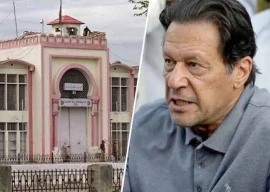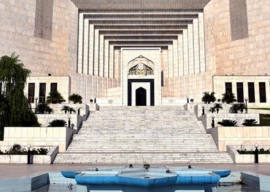
Mohamed was in Karachi for ‘Network!!’ – Pakistan’s First International Social Media Summit. An economist by training and a consultant on government policy, Mohamed says he has been blogging for the last six years and has also moved into writing for the press.
He was actively involved in the Egyptian Revolution from day one and reported it on both social and traditional media.
“I was blogging anonymously before the Egyptian Revolution, focusing on travelling at first and then moving on to politics and current affairs. I’ve been focusing more on Egyptian affairs for the past seven months now,” says Mohamed.
Mohamed says a group of people was already actively expressing their concerns even before the revolution, both online and offline. He says they would gather in small numbers and protest to make their presence known. At the same time people in Egypt were also active online, pushing for awareness and focusing on critical issues.
“I would say 2010 was the buildup and 2011 was the explosion. People’s grievances had been building up for a while. Our job was to inform people and go out in small numbers to inform people about issues being faced.”
Mohamed says the revolution would have happened if social media was not there, but it would have taken a little longer.
“Social media allowed people to come together, organise and motivate themselves. It gave people an outlet to vent their anger,” says Mohamed.
“Social action is collective action. If the government tells you you’re on your own and everybody is happy, you are afraid of doing things. But social media changed that. It helped bring together people who were upset about the same things.”
Mohamed says the biggest social media platform that contributed towards helping people during the revolution was Facebook. He says there were influential blogs but Facebook had groups with hundreds and thousands of members, people who had been victims of “brutality”.
“Twitter was super important during the revolution, it helped us get live updates,” he says.
He says the government’s move of blocking social media websites and the internet itself to isolate people was a “stupid” move. “You can either be home alone and afraid or you can join a million people and live and die together, but you cannot be afraid alone.”
The Egyptian government during its crackdown against social media sites had labeled Facebook users as the “Facebook Youth” and stating that they were criminals against the government. Mohamed recalls when he was travelling in a cab and was stopped and beaten up by a mob because he was carrying a laptop with him.
Mohamed says the revolution helped people more active than they already were on social media sites. “People had a new found respect social media, even the Egyptian Army has a Facebook page now and they make all declarations through it. They recognize the power of social media.”
Now that the revolution is over, social media is helping people become observers and be more responsible in Egypt. Mohamed says people have put up documents found at state police offices and he himself went to a referendum and put up pictures of technical violations.
“We are still wondering what we should be doing now. Maybe we are on an observation mission.”
The Egyptian Ministry of Finance invited the youth of the revolution to ask for their feedback on the budget, Mohamed says. He believes social media has helped create the awareness that the youth is also a stakeholder in the country.
Mohamed says there is always a core of people and it is the core that takes the actual cause forward. He says focusing on the same issue counts the most and Egypt was lucky to have a dedicated core focusing on an issue.
Momentum is important for change he says, and adds that the government in Pakistan always manages to deflate the momentum.


1725443747-0/Untitled-design-(5)1725443747-0-165x106.webp)














COMMENTS (7)
Comments are moderated and generally will be posted if they are on-topic and not abusive.
For more information, please see our Comments FAQ